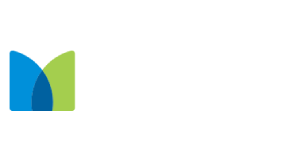In the realm of health insurance, individuals often seek additional coverage options to enhance their overall protection and address specific healthcare needs. These supplementary provisions can be likened to fragments of a mosaic that come together to create a comprehensive and robust healthcare plan.
This article aims to explore various typical additional coverage options available for health insurance, such as prescription drug coverage, dental and vision coverage, maternity and childbirth coverage, mental health and substance abuse coverage, and alternative and complementary medicine coverage.
By delving into these topics with an informative approach, readers will gain a deeper understanding of the diverse possibilities when it comes to augmenting their healthcare plans.
Prescription Drug Coverage
Prescription drug coverage is a common additional option available in health insurance plans. It is designed to provide financial assistance for the cost of prescription medications. Insurance providers typically offer different levels of coverage, which can vary based on factors such as the type of drugs covered and the amount of out-of-pocket costs that individuals are responsible for.
One important aspect of prescription drug coverage is the drug formulary. This is a list of approved medications that are covered by the insurance plan. The formulary often categorizes drugs into tiers, with each tier having a different level of coverage and associated costs. Typically, generic drugs are placed in lower tiers with lower copayments or coinsurance rates, while brand-name drugs may be placed in higher tiers with higher out-of-pocket costs.
Out-of-pocket costs for prescription drug coverage can include deductibles, copayments, and coinsurance. Deductibles are the amount individuals must pay before their insurance coverage kicks in. Copayments require individuals to pay a fixed fee for each prescription medication they receive, while coinsurance involves paying a percentage of the medication’s cost.
Understanding these aspects of prescription drug coverage can help individuals make informed decisions when selecting health insurance plans and managing their healthcare expenses. By considering factors such as the specific drugs covered by the formulary and potential out-of-pocket costs, individuals can choose an option that best suits their needs and budget constraints.
Dental and Vision Coverage
Dental and vision services are commonly included as part of comprehensive health insurance plans. These additional coverage options provide individuals with access to necessary oral and visual care, promoting overall wellness.
Dental coverage typically includes preventive care such as regular check-ups, cleanings, and X-rays. Additionally, many plans offer coverage for basic procedures like fillings and extractions. Some dental insurance plans may also include orthodontic coverage, which helps cover the costs associated with braces or other corrective treatments.
Vision coverage goes beyond routine eye exams by providing benefits for prescription eyewear such as glasses or contact lenses. It may also cover a portion of the cost of more complex procedures like cataract surgery or laser eye surgery.
Preventive care coverage is an essential aspect of both dental and vision insurance. This includes services aimed at detecting potential issues early on, thus preventing more significant problems in the future.
Overall, incorporating dental and vision coverage into a comprehensive health insurance plan ensures that individuals can maintain good oral and visual health. By including preventive care options along with coverage for orthodontic procedures, these plans contribute to improved overall well-being while minimizing out-of-pocket expenses for necessary treatments in these areas.
Maternity and Childbirth Coverage
Maternity and childbirth coverage is an integral component of comprehensive health insurance plans, providing individuals with access to necessary prenatal care, labor and delivery services, and postpartum support. This coverage ensures that expectant mothers receive the essential medical attention they need throughout their pregnancy journey.
Prenatal care includes regular check-ups with healthcare providers, which involve monitoring the mother’s health as well as the baby’s growth and development. It also includes important screenings for conditions such as gestational diabetes and preeclampsia.
Additionally, maternity coverage encompasses labor and delivery services, ensuring that women have access to a range of options for giving birth. These options may include hospital births or birthing centers, along with various pain management techniques.
Postpartum support is another crucial aspect of maternity coverage. It provides assistance to new mothers in the weeks following childbirth, offering resources such as lactation consultants to help establish breastfeeding and mental health support for those experiencing postpartum depression or anxiety.
While fertility treatment options are not typically covered under basic health insurance plans, some comprehensive policies may include limited coverage for certain infertility treatments. These treatments could encompass diagnostic testing or procedures like in vitro fertilization (IVF) or intrauterine insemination (IUI).
Overall, maternity and childbirth coverage plays a vital role in ensuring the well-being of both expectant mothers and their babies by providing essential prenatal care, labor and delivery services, postpartum support, and potentially limited coverage for fertility treatment options.
Mental Health and Substance Abuse Coverage
Mental health and substance abuse coverage is a critical aspect of comprehensive healthcare plans, encompassing services that address mental illnesses and addiction disorders to ensure individuals have access to necessary treatment and support. This coverage is essential as it helps individuals with mental health conditions or substance abuse disorders receive the care they need without facing financial barriers.
Insurance coverage for therapy sessions is one key component of mental health and substance abuse coverage. It allows individuals to access therapy services, such as individual counseling or group therapy sessions, which can be vital in managing mental health conditions or overcoming addiction. This coverage often includes visits to licensed therapists or psychiatrists who specialize in mental health treatment.
Addiction treatment coverage is another important aspect of this type of insurance. It provides individuals with access to various treatments for substance abuse disorders, including detoxification programs, outpatient counseling, residential rehabilitation centers, and medication-assisted treatments. These resources help individuals overcome addiction and maintain long-term recovery.
Furthermore, mental health and substance abuse coverage also usually include preventive services such as screenings for depression or anxiety disorders. Early identification of these conditions enables prompt intervention and appropriate treatment.
Overall, adequate mental health and substance abuse coverage within healthcare plans are crucial in addressing the needs of individuals with these conditions by providing them with necessary therapeutic interventions and support systems that contribute positively towards their overall well-being.
Alternative and Complementary Medicine Coverage
Alternative and complementary medicine practices, such as acupuncture or chiropractic care, are often included in comprehensive healthcare plans, providing individuals with additional options for managing their health conditions. These integrative therapies offer holistic healing approaches that focus on treating the whole person rather than just the symptoms of a specific ailment.
Integrative therapies encompass a wide range of practices that are not typically part of conventional Western medicine. They may include treatments like herbal medicine, naturopathy, massage therapy, and mind-body techniques such as meditation or yoga. These approaches aim to address the underlying causes of illness and promote overall well-being by considering factors such as lifestyle, diet, stress levels, and emotional health.
Holistic healing approaches recognize the interconnectedness of various aspects of an individual’s life and emphasize the importance of balance and harmony in achieving optimal health. By incorporating alternative and complementary medicine into healthcare plans, individuals have access to a broader spectrum of treatment options beyond traditional medical interventions.
It is important to note that while some alternative therapies have been extensively studied and shown to be effective for certain conditions, others lack scientific evidence supporting their efficacy. Therefore, it is crucial for individuals to consult with qualified practitioners who can provide evidence-based recommendations and ensure safety when pursuing alternative or complementary treatments.
Frequently Asked Questions
Is Prescription Drug Coverage Included in All Health Insurance Plans, or Is It an Additional Coverage Option That Needs to Be Purchased Separately?
Prescription drug coverage is not included in all health insurance plans. It is often offered as an additional coverage option that needs to be purchased separately, providing individuals with access to medication benefits beyond basic medical services.
What Types of Dental and Vision Services Are Typically Covered Under Health Insurance Plans, and Are There Any Limitations or Exclusions?
Dental and vision services covered by health insurance plans may have limitations or exclusions. Limitations can include specific procedures, waiting periods, or annual maximums. Exclusions may apply to cosmetic treatments or certain pre-existing conditions.
Are All Health Insurance Plans Required to Include Coverage for Maternity and Childbirth Services, or Is It an Additional Coverage Option That Needs to Be Added?
The inclusion of coverage for maternity and childbirth services in health insurance plans varies. Some plans may include it as a standard coverage option, while others may require it to be added as an additional coverage option. Additionally, prescription drug coverage is another common option provided by health insurance plans.
What Types of Mental Health and Substance Abuse Services Are Typically Covered Under Health Insurance Plans, and Are There Any Limitations or Exclusions?
Coverage for mental health and substance abuse services in health insurance plans typically includes therapy and counseling services, as well as addiction treatment and rehabilitation programs. Limitations or exclusions may exist depending on the specific plan.
What Alternative and Complementary Medicine Services Are Typically Covered Under Health Insurance Plans, and Are There Any Restrictions or Limitations on the Coverage?
Coverage options for alternative medicine services under health insurance plans vary. Some plans may offer coverage for services such as acupuncture, chiropractic care, or naturopathy. However, there are often limitations and restrictions on the extent of coverage provided for these services.
Conclusion
Prescription drug coverage is an essential additional option for health insurance, ensuring that individuals have access to necessary medications.
Dental and vision coverage can help maintain oral and visual health, preventing potential complications.
Maternity and childbirth coverage supports women during pregnancy and delivery, providing vital medical services.
Mental health and substance abuse coverage is crucial in addressing mental well-being and addiction treatment.
Lastly, alternative and complementary medicine coverage offers alternatives to conventional treatments, promoting holistic approaches to healthcare.
Considering these options can enhance the overall scope of health insurance coverage.
In conclusion, understanding the various additional coverage options available for health insurance is crucial in securing comprehensive healthcare protection.
Prescription drug coverage ensures access to necessary medications, while dental and vision coverage promotes oral and visual health.
Maternity and childbirth coverage provides support during pregnancy and delivery, while mental health and substance abuse coverage addresses important aspects of overall well-being.
Finally, alternative and complementary medicine coverage offers alternative treatment options for a holistic approach to healthcare.
By considering these additional options, individuals can enhance their overall healthcare experience coincidentally with their specific needs in mind.









